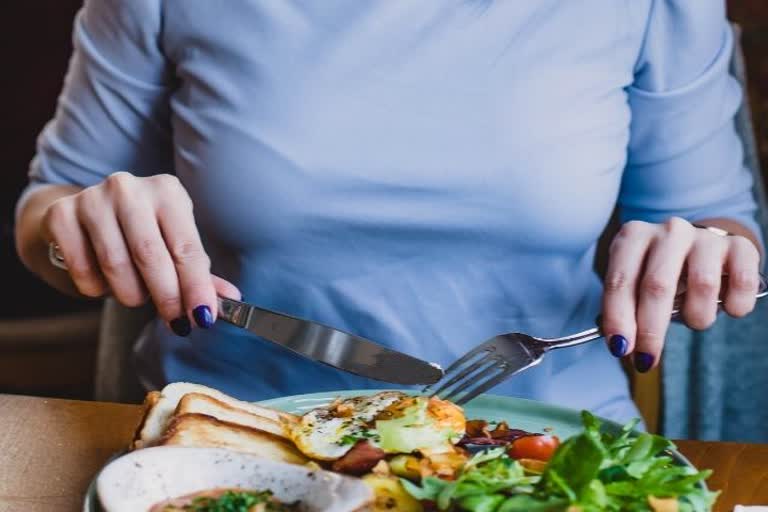What Should Be The Diet Of Women After 40?
Right nutrition and a healthy diet are a must for people of all ages for both physical as well as mental health. Especially for women, a good diet is important because their body goes through many changes in every stage of their life. When women turn 40, the body requires many essential nutrients, therefore, a proper diet is necessary. Dr. Sangeeta Malu, Nutritionist at MGM Medical College and Nehru Children’s Hospital and Research Center, Indore informed the ETV Bharat Sukhibhava team more about how women’s diet should be after 40.
Focus On What You Eat
Dr. Sangeeta Malu says that as soon as women cross the age of 40, their body's metabolism starts decreasing as well as their hormonal level also decreases. Their digestive system is also affected. Along with this, menopause usually occurs in women between 45 and 50 years of age, although in some women, symptoms of menopause occur before 45 years of age. Therefore, to protect the body from these and many other similar problems, it is very important that women pay special attention to what they eat or drink. They must remember that it should be low in calories, but high in calcium, iron, protein, and fiber.
Controlled And balanced Diet
Since after the age of 40, the body’s metabolism begins to lower down, it is important to have a controlled diet. At this age, women should reduce their caffeine and alcohol intake. Because caffeine and alcohol promote menopause and alcohol also affects the heart and kidneys. Apart from this, salt and sugar must be consumed in small quantities only. The reason behind this is that since our body functions begin to slow down at this age, large quantities of any kind of food can cause indigestion. Therefore, the quantity of food should be consumed according to the body’s ability to digest it.
Reduce Calories And Fat In Diet
Dr. Malu says that whether there is a disturbance in metabolism, imbalance in diet, problem in hormones, or any disease, after the age of 40, the problem of weight gain starts appearing in women due to various reasons. Therefore, it is important to control the amount of calorie consumption.
Calories in our body are acquired from carbs and fats. At this age, women require about 2000 to 2500 Kcal per day. Fat i.e. Ghee / Oil is used a lot in our Indian food. And consumption of 25 to 30 grams of oil or ghee per day is very important for the body of women after the age of 40. The remaining quantity of required fat is obtained from other foods that we eat.
Protein
Dr. Malu says that it is one of the most essential nutrients. Generally, after the age of 40, degeneration of protein starts not only in women but also in men. And during this time, more protein is required by the body to function properly. 0.8 to 1 gram of protein per kg of weight should be consumed. This can be acquired from both vegetarian and non-vegetarian food items. But it is also important to know that the protein obtained from vegetarian food is comparatively better. Hence, for this, dairy products like milk, curd, pulses, beans can be consumed.
Vitamin D
